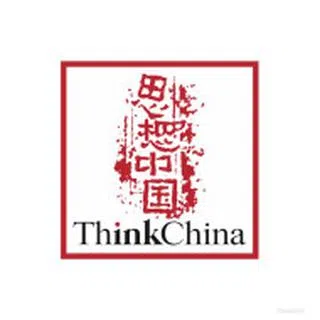Is the US still a friend of the EU?
The already tenuous relationship between Europe and the US is being further strained by the war in Ukraine. Europe-based journalist Chieh-Yi Cheng looks at how Europe-US ties are likely to develop from here.
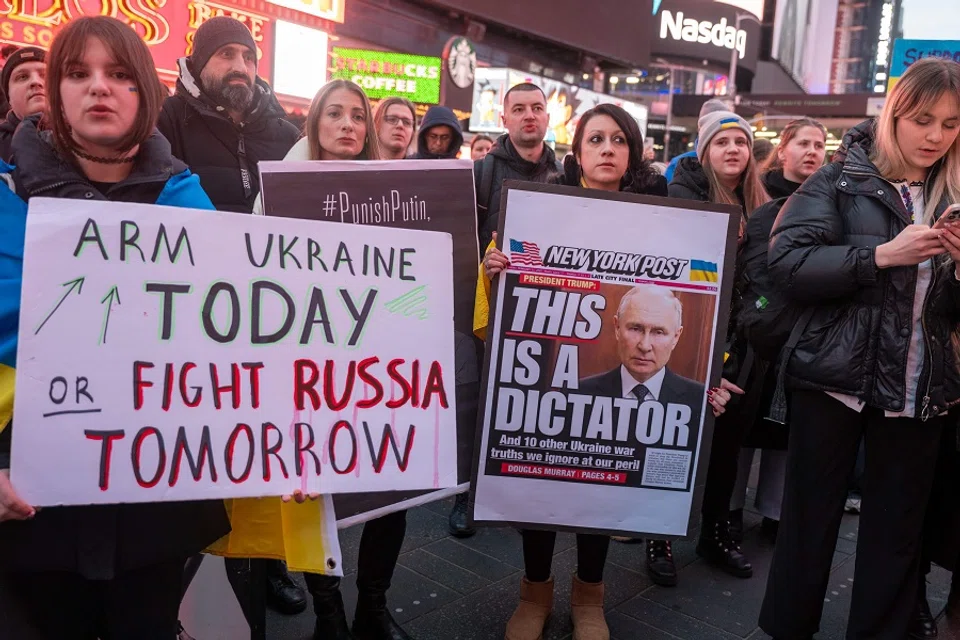
Neither Ukraine nor European countries have a seat at the negotiating table discussing how to end the Russia-Ukraine war. A day before US Secretary of State Marco Rubio was due to meet Russian Foreign Minister Sergey Lavrov in Saudi Arabia, French President Emmanuel Macron convened an emergency meeting of European leaders in Paris, where 11 leaders gathered at a large round table. A meeting intended to unify Europe instead highlighted divisions, with Britain and France leaning towards deploying troops to guarantee Ukraine’s security, but Germany, Italy and Poland opposing.
While Europe complains of being excluded from negotiations, this inconclusive meeting demonstrates that, three years into the war, Europe is not only struggling militarily but also diplomatically, paralysed by the fear of being labelled appeasers. They lack a peace plan and are unsure who should represent them at the negotiating table.
‘The old world is dying, and the new world struggles to be born’
Prior to the US-Russia talks, US Defence Secretary Pete Hegseth said that Ukraine is unlikely to restore its pre-2014 borders; will not become a NATO member; and will not receive security guarantees from the US. His remarks were criticised as the US giving up its leverage in negotiations with Russia before they even started. Furthermore, peace without security guarantees could allow Russia to regroup and launch another offensive after a period of recovery.
Hegseth later clarified that any concessions would be decided by US President Donald Trump, while US Vice-President JD Vance asserted that Trump might change his mind depending on how the negotiations unfold. In other words, the president has the final say, but he may not even know what he wants from Europe, other than their eventual consent to whatever “peace” deal he strikes with Russian President Vladimir Putin.
In one fell swoop, Trump wants to extricate himself from the quagmires of Europe and the Middle East, and pivot to the Indo-Pacific; distancing himself from Russia and Iran, driving a wedge between Putin and Chinese President Xi Jinping, and also courting Saudi Arabia, a country investing in Chinese artificial intelligence.
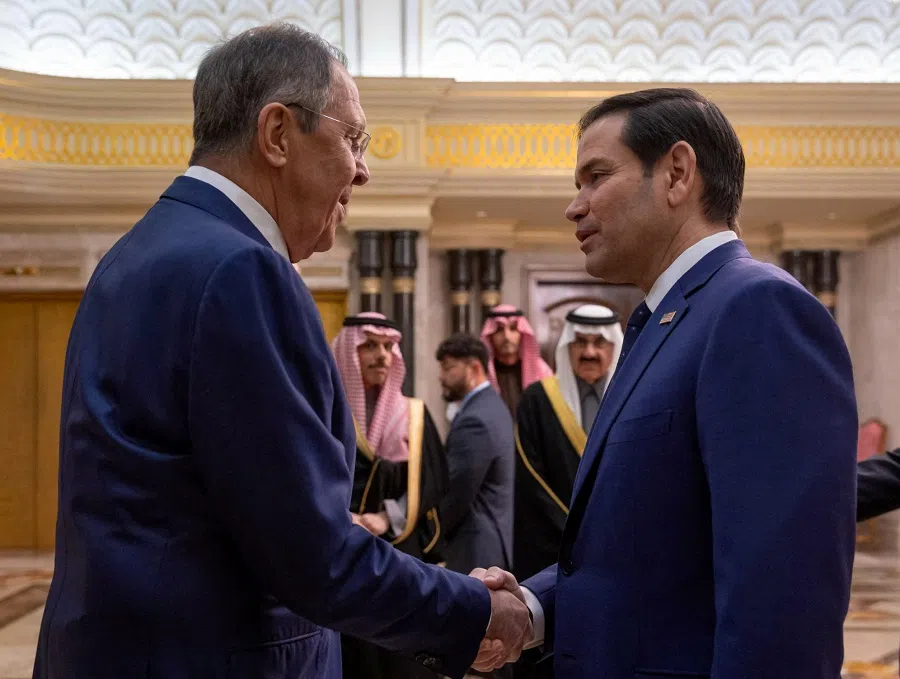
Clearly, Trump wants to reach a big deal. Rubio and Lavrov met in Saudi Arabia — the three participating countries major oil producers wielding significant power over global energy prices. At the same time, Saudi Crown Prince Mohammed bin Salman also maintains relationships with both Putin and Trump. Russia seeks sanctions relief and welcomes US investments. The discussions extend beyond Europe, and even involves the Middle East and the Arctic, which has become a hot topic due to Trump’s interest in purchasing Greenland.
In one fell swoop, Trump wants to extricate himself from the quagmires of Europe and the Middle East, and pivot to the Indo-Pacific; distancing himself from Russia and Iran, driving a wedge between Putin and Chinese President Xi Jinping, and also courting Saudi Arabia, a country investing in Chinese artificial intelligence.
Trump ‘made Putin great again’
Whether it is a ceasefire or a peace deal, negotiations will be protracted. It remains to be seen whether Trump can achieve his desired deal. It is also uncertain whether Putin can seize eastern Ukrainian territory, including Black Sea ports, rewrite the European security architecture, and turn Ukraine into a demilitarised puppet state as he so desires.
But he has already won a battle, transforming himself from being labelled a “butcher” by former US President Joe Biden into a power broker on an equal footing with the US. Just one month into taking office, Trump has “made Putin great again”, after the latter experienced three years of global isolation. The world has returned to the law of the jungle where “the strong do what they can and the weak suffer what they must”.
Trump yearns for 19th-century America, which had no qualms about using brute force. He believes that the US is being constrained by the world order it established after World War II. Since the US shaped the existing order, he wants to tailor-make a new one, fulfilling Italian philosopher Antonio Gramsci’s century-old prediction: “The old world is dying, and the new world struggles to be born: now is the time of monsters.”
... the weakness in the EU’s defence lies not in funding, but in the lack of strategic integration as well as uniformly-equipped weapons and trained soldiers.
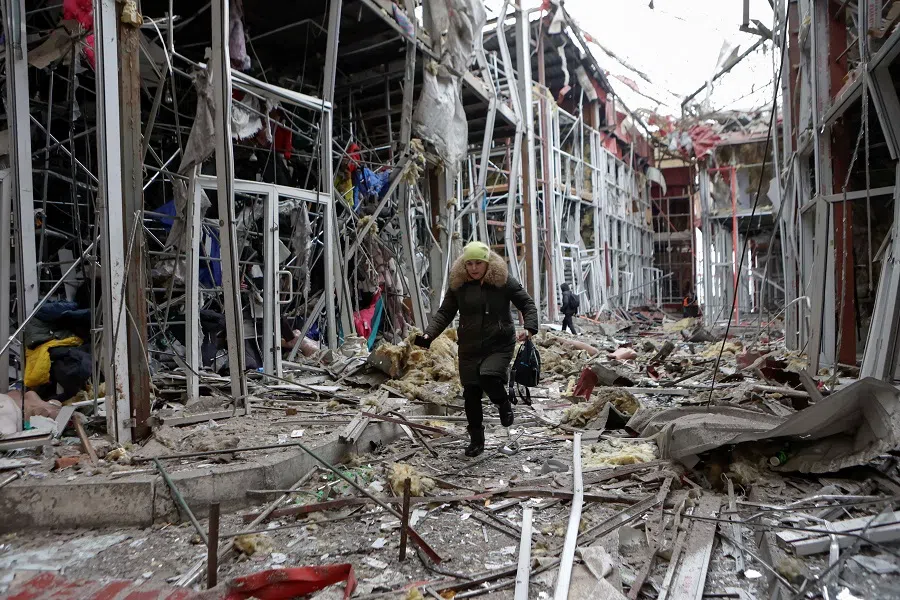
The maimed soldiers on the battlefields of Ukraine, the innocent displaced civilians, and even the journalist murdered by the Saudis, have all become mere trivialities in the power struggles of major powers. Trump seems eager to replace Xi as Putin’s “true friend”. He called for Russia’s return to the G7, a core group of Western nations, thereby restoring the G8; and accused Ukraine of starting the war, almost sounding like Moscow’s spokesperson, labelling Ukrainian President Volodymyr Zelenskyy as “a dictator without elections” (elections were delayed due to martial law) and suggesting that he should be removed from power — insinuating that he is to be blamed if the agreement falls through.
When Putin reviews his troops in Moscow’s Red Square on 9 May, celebrating Russia’s victory in the “Great Patriotic War” against the Nazis 80 years ago, he will be able to flaunt the victor’s glory to Xi, who is invited to attend. The pair could even compare notes on their dealings with Trump. It remains to be seen whether Trump’s elevation of Putin’s status, coupled with his pressure on Ukraine to make concessions, will be enough to damage China-Russia relations. However, the US’s recent criticisms of Ukraine and Europe have already damaged the transatlantic alliance, and others are now questioning the reliability of US commitments.
In order to hold on to the US, European countries are intensively discussing deploying troops to Ukraine to ensure security, or to form an elite force that combines cybersecurity, satellite, land and air forces — ready to be deployed to the frontlines at any time, with the increased defence expenditure being excluded from the EU’s fiscal rules.
However, the weakness in the EU’s defence lies not in funding, but in the lack of strategic integration as well as uniformly-equipped weapons and trained soldiers. The average defence spending of the EU’s 27 member states accounts for 1.9% of GDP, reaching 326 billion euros (US$341 billion) by 2024, a 30% increase over two years. In contrast, Russia’s military spending is 102 billion euros.
Is the US still a friend?
Strengthening military capabilities is a technical issue that could be overcome; the big question for the EU now is: is the US still a friend? The issue is not just Trump’s personal bluster and threats, but also the abrupt shifts in US policy. The EU lacks a joint military and a common foreign policy, often following the US’s lead.
After the outbreak of the Russia-Ukraine war, EU countries followed the US in aiding Ukraine, and in the summer of 2023, alongside then US President Joe Biden, they celebrated Finland and Sweden joining NATO. However, after contributing US$145 billion — more than the US$105.9 billion by the US — they were discarded by Trump like a worn-out shoe.
Compared to European establishment figures, the US president seemed to be more aligned with Putin, who similarly exploits traditional Christian values to unify nationalist consciousness, and seeks outward expansion for “survival space”.
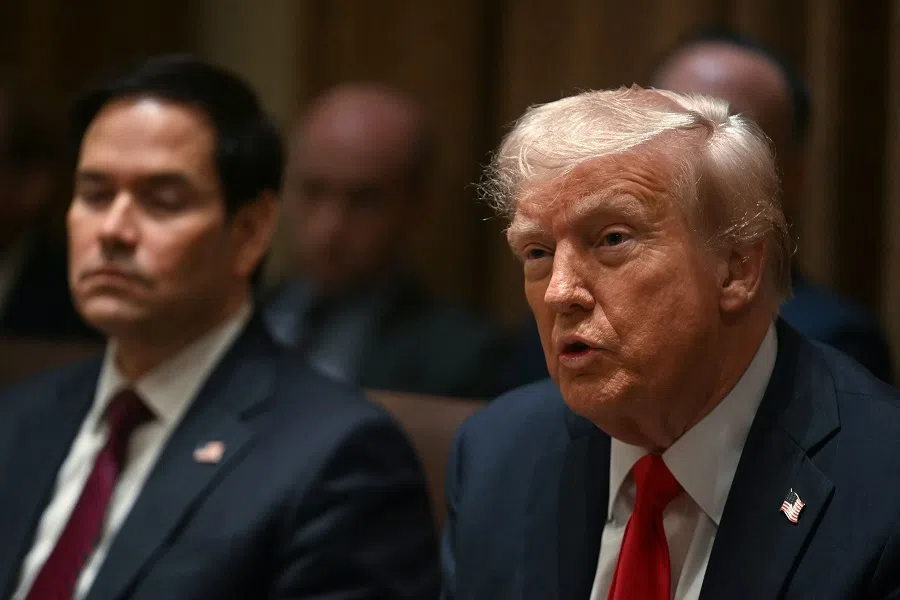
Trump not only felt that the EU freeloads on US security and took advantage of trade, he also believed the EU is aligned with the woke culture he so detests. His deputy JD Vance criticised Europe at the Munich Security Conference for straying from the Western values they shared with the US, arguing that the biggest security threat is not Russia or China but “within Europe” — the suppression of freedom of speech, blocking populist parties on the left and right from speaking out and threatening the freedom of religious conscience.
Ironically, Vance made this statement in Germany — a country he criticises for suppressing free speech — even as far-left and far-right parties are gaining traction there, and with the far-right already in power in eight EU nations. The rift between the US and Europe is further widened by the fact that Trump’s supporters include populists with fascist and Nazi ideologies. Compared to European establishment figures, the US president seemed to be more aligned with Putin, who similarly exploits traditional Christian values to unify nationalist consciousness, and seeks outward expansion for “survival space”.
That the US and its allies are going their separate ways is not news, but it has mostly occurred in peripheral regions, such as abandoning the Kurds fighting ISIS or independently withdrawing troops and allowing the Taliban to regain control of Afghanistan. In 2020, Trump bypassed the Afghan government to negotiate directly with the Taliban. When intelligence indicated the Taliban’s breach of promises, Trump — eager to end the 20-year Afghan war — pushed forward. The following Biden administration did not reverse the policy, resulting in the world witnessing the hasty withdrawal of US troops.
Ukrainian President Zelenskyy, mistakenly believing he could defeat Russia with Western support, abandoned negotiations. Now, the role of mediator falls once again to Trump the “dealmaker”.
In spring 2022, as Russia and Ukraine were fiercely battling whilst negotiating, the West stood by. Ukrainian President Zelenskyy, mistakenly believing he could defeat Russia with Western support, abandoned negotiations. Now, the role of mediator falls once again to Trump the “dealmaker”.
However, international negotiations are not real estate deals — back when Trump was eager to reach an agreement with the Taliban, then-senator Mitch McConnell criticised it as a repeat of the Vietnam War blunder and said that “a rapid withdrawal of US forces from Afghanistan now would hurt our allies and delight the people who wish us harm”. Now, as Secretary of State, Rubio is responsible for peace in Ukraine. Hopefully, he would not witness a Saigon-type situation unfold in Europe under his watch.
